
Unlike most film critics, I am not a Todd Haynes admirer. His films are dull, sterile, pretentious award-baits. Their gloss, sophistication, and technical savvy masquerade a dearth of true feeling. A visionary filmmaker he’s not. If anything, his oeuvre harks back to the good ol’ films of yore, with minimal stylistic flourishes but perfectly-framed, statuesque heroes standing for a cause, fighting injustice, or falling victim to it. My wife and I still joke about the time we sat through the entire six hours of Haynes’ five-part miniseries Mildred Pierce – one of the most underwhelming, not to mention boring, viewing experiences in my life.
Similarly to the filmmaker’s others heralded “masterworks” – Carol and Far from Heaven – Dark Waters is a bleak, formalist study of an undeniably compelling subject. In this case, Haynes follows the righteous, years-long journey of a corporate defense attorney, who stands up against a chemical conglomerate, exposing a history of pollution in the process. There has never been a film like this. Except, you know, The Verdict, The Rainmaker, A Civil Action, Erin Brockovich, North Country, Michael Clayton, Spotlight – and, most recently, The Report, to name a few.
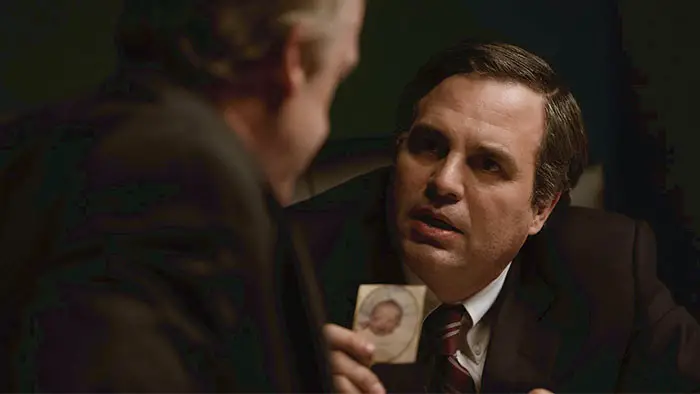
“Robert decides to take the case, becoming something of a whistleblower, using all the information at his hands against the giants that shaped him.”
That’s not to say that David vs. Goliath stories such as this should not be made. Au contraire, those real-life stories of heroes, underdogs we can all relate to, make for some of the most fascinating character studies – if told with enough passion, verve, and penetrating insight (see my recent review of Clint Eastwood’s Richard Jewell). Sadly, Dark Waters fails on all these accounts. Aside from a strong central performance, and Haynes’ signature mastery of camera placement, this film even lacks the colorful art direction and costume design of Carol and Far from Heaven – which livened them up to a certain degree, and the lack of which makes his latest outing an almost unbearably-dreary, butt-numbing experience. Leave it up to Haynes to tell an intriguing tale in the most pragmatic, straightforward way possible.
Mark Ruffalo plays said defense attorney, Robert Bilott, a self-made man from provincial West Virginia, recently promoted at a prestigious firm whose focus lies in defending chemical companies. All is gravy, until Bilott’s past surfaces in the form of Wilbur Tennant (the chameleon-like Bill Camp). Hailing from Robert’s birth town, Wilbur literally shows up at the attorney’s office with a box of videotapes that contain proof of major contamination in his farm. Hesitant at first, Robert decides to take the case, becoming something of a whistleblower, using all the information at his hands against the corporate giants that shaped him.
Robert methodically sifts through hundreds of boxes of “evidence,” sent to him by the evil conglomerate, Du Pont, led by Phil Donnelly (Victor Garber). “Better living through chemistry is not just a slogan at Du Pont,” Phil says, “it’s in our DNA.” What’s also in their – and all of our – DNA, as it turns out, is an unregulated “forever chemical” called PFOA, found in Teflon, which has been proven to cause, among many things, birth defects and cancer. Du Pont, who makes over $1 billion in profit from selling Teflon, isn’t prepared to go down easy, with scientists in their pockets. As Robert fights the good fight, the media discredits the now cancer-ridden Wilbur for suing the “town’s main employer.”
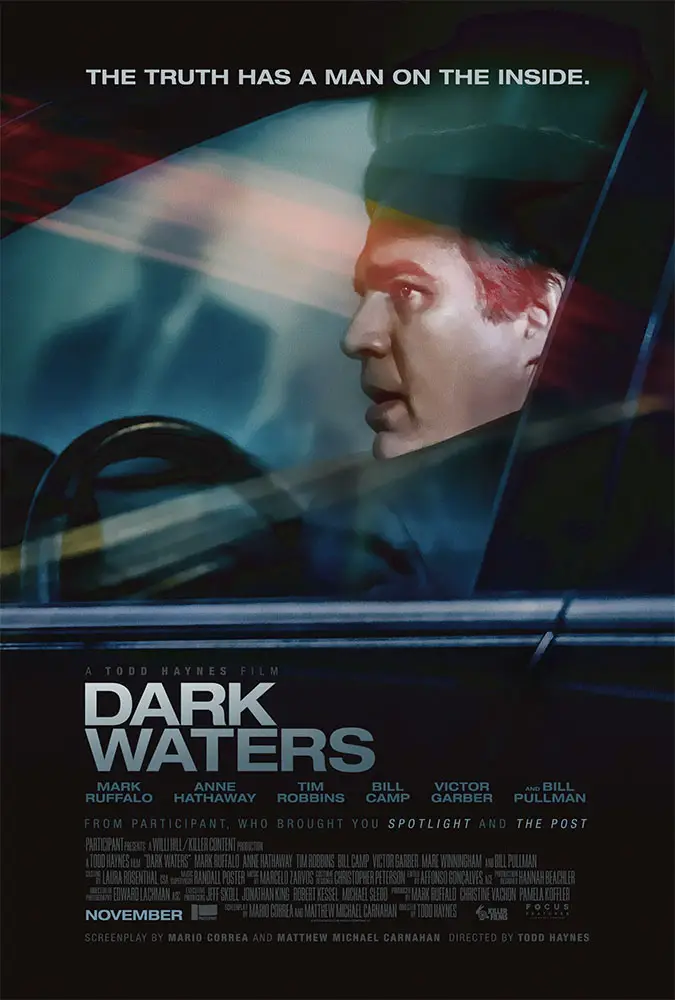
"…memorable moments involving cows – a POV of a rabid cow; 190 cow graveyards..."

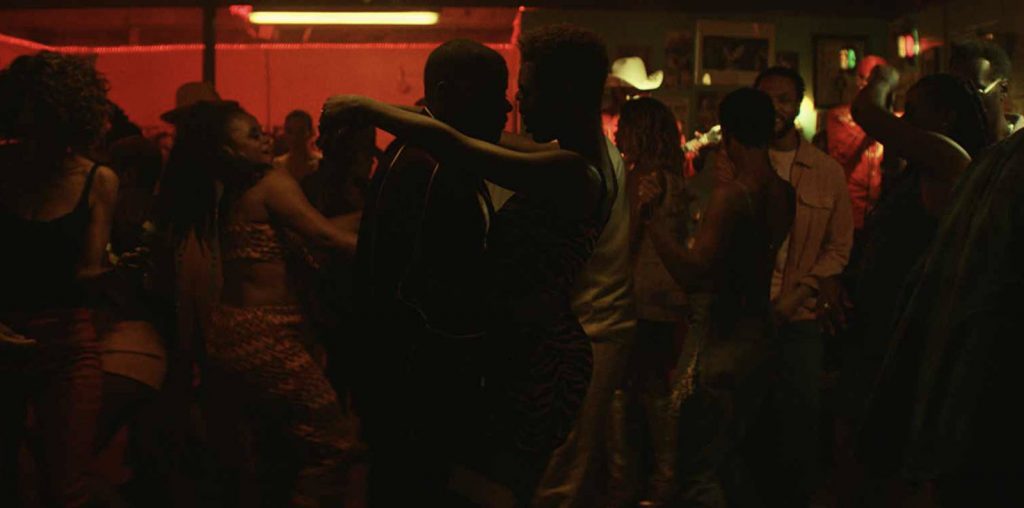
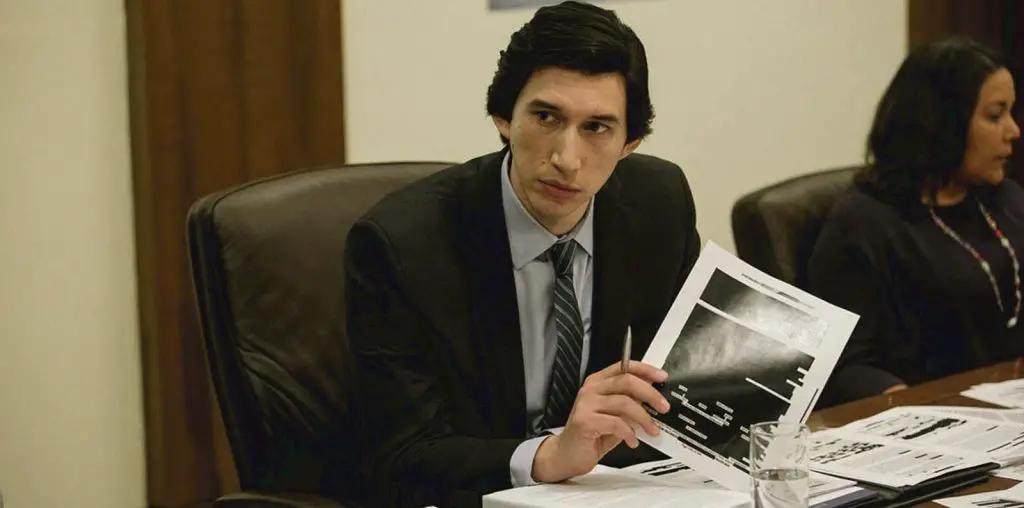



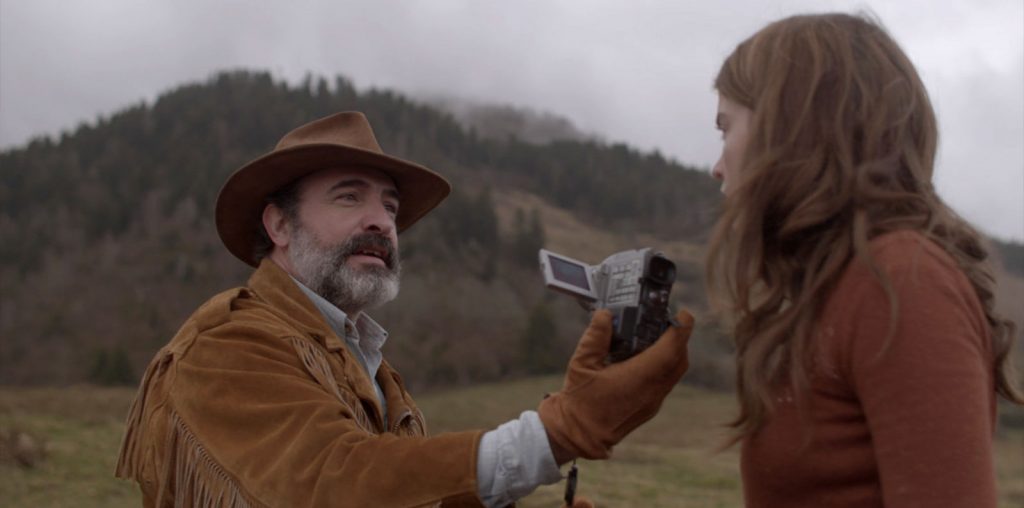
Unlike the reviewers here, I’m black, and I can tell you that the “black” portion of “Far From Heaven” was one of the best depictions of real black life in that period I have ever seen in over six decades of moviegoing. So I’d be inclined to give this one a shot, especially with that unneeded slam that began this review.
While I agree with you, I wasn’t reviewing “Far from Heaven”. I was reviewing “Dark Waters”. I made it very clear that “the slam” was my opinion, and you are very much entitled to your own. Hope you enjoy the film!
Horrible review. Please don’t read this! Reading that ‘the wigs are aweful’ captures the things this review focusses on. Please focus on the true story the filmmaker is portraying.
I’d like to think that I focused on more than just the wigs, which was just a cheeky remark. I also truly appreciate criticism from folks who can’t spell “awful” or “focuses”. 😉
You’re criticizing the film for some of the wrong reasons. One of them being that Mark Ruffalo is not going to portray Rob Bilott as anything other than how he is – a guy with a damn tight lid on himself. If that’s not cinematically interesting, too bad, that’s the way Rob is, at least Ruffalo has the guts to play the truth, it doesn’t change Rob’s Herculean effort, in challenging DuPont. If the look of the film is boring, well no wonder, this part of the country looks like it’s 8 am ALL DAY, 85 – 90 % of the time from November to April, every year. They shot the film (about an hour away from where I live) this past Jan – Mar, which was one of the darkest, wettest winters we’ve ever had – I don’t think D.P., Ed Lachman had much to work with, poor guy.
The film was pretty solid. It could’ve used some small cuts here & there & I think Haynes made a mistake going to a black screen every time there was a jump in time – it made the film lose momentum; flowing one scene into the next, with the date on the screen would have sufficed.
As to black characters, the inclusion of William Jackson Harper was a favor from Haynes, as Taft *had* no black partners, at least at that time, and God forbid a film in the 21st century portray a Christian woman the way she really is – if you think something’s wrong about her being portrayed in the way she is then you’re not nearly as open-minded as you think. The film wasn’t about her, and could barely be enough about the Bilott’s as a family, as it was, with the point of the film being what Bilott discovered about DuPont & the strain it had on him.
Is it a great film? I wish it was, because what it is saying is extremely important. Everybody on the planet should see it, and then never buy any product containing PFAS ever again. DuPont doesn’t deserve to exist.
Thank you for your comments. I absolutely agree with you that the subject is important and should be portrayed cinematically, so that its message reaches as many people as possible. That said, any film should primarily be entertaining, so that people go see it, right? Otherwise, they’re delegated to watching an equivalent of a dry visual essay. I believe that a different filmmaker (Steven Soderbergh, Darren Aronofsky, among many), could have infused the narrative with more verve.
And yes, in a film, the protagonist should be “cinematically interesting”, even if he didn’t seem that way in real life. Dig a little under that “lid”, that’s what a filmmaker’s job is. We’re all fascinating because we’re human, and it’s an artist’s job to single out aspects that make a character inherently compelling.
I relate to Ed Lachman’s issues, and perhaps the film’s visual style fits the setting, but again: it’s a filmmaker’s job to make the dreariest of settings visually stimulating (for a great example, see Oren Moverman’s treatise on homelessness, “Time Out of Mind”).
I don’t really see how an inclusion of a black character in a film these days can be interpreted as a “favor”. If there weren’t any black characters at the firm, so be it – stay true to the real story; I feel like that’s less needlessly provocative. And Hathaway’s shrill, one-note performance, at least to me, failed to represent the warmth and spirit and nuance of a 21st Century woman, Christian or not. You’ve done a much better job in 4 paragraphs!
I think we both agree that it could have been a more resonant, sharper film considering the important subject matter. Alas, this one just didn’t do it for me!